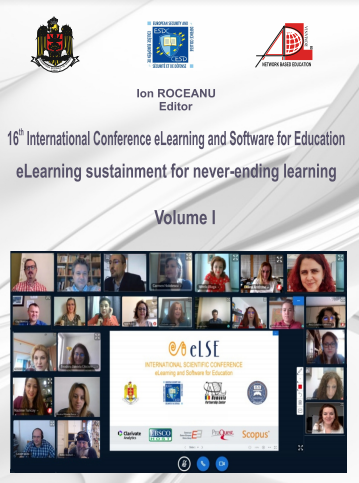THE CONCEPT OF WORKFLOW IN THE EDUCATION SYSTEM IN THE FIELD OF NATIONAL SECURITY
THE CONCEPT OF WORKFLOW IN THE EDUCATION SYSTEM IN THE FIELD OF NATIONAL SECURITY
Author(s): Daniel RomanSubject(s): Security and defense, ICT Information and Communications Technologies, Distance learning / e-learning, Pedagogy
Published by: Carol I National Defence University Publishing House
Keywords: security; education system; E-learning; crisis; workflow;
Summary/Abstract: The state of security is at the prime reference element for the existence of any entity, regardless of its nature and its reporting to micro- and macro-level dimensions. The complexity of the system of risks and vulnerabilities resulting from the mutual conditioning relations of the societal fields implies a reconsideration of the educational units in the field of national security. This fact translates the training of the specialist in the field of national security, as a requirement of its ability to respond to the new challenges posed by the influence factors which may generate crisis situations or may have a major negative impact. The concept of inter-institutional workflow applied to the education institutions might be a saving solution to the complex threats that modern society has to face nowadays. Cyberattacks in all spheres of social life are a direct response to the societal digitalization of all areas of a state or of a state alliance. In this context, the crisis as a destructive factor of a society involves an integrated approach to security factors. Therefore, the education system in the field of national security need to be connected to this new reality and to identify the best options for training specialists in this field so they can find the proper solutions and methods in order to prevent and counteract any attack against the society. Although, every security system is based on rigorous planning measures, the dynamics of the transformations in their own operational environment confirms that they will never be sufficiently prepared to prevent or combat a crisis situation. Therefore, a security specialist cannot be considered a "finished product" of an education system. This statement shows the hermetic features of the educational units which, due to their level of classification, function in isolation. A solution to this problem may consist of developing databases in order to detect instances of threat scenarios and implicitly disseminating results based on risk analysis for each particular situation. The extrapolation of the risks from the specific to the general followed by finding viable solutions in the field of national security can be achieved within an education system based on collaboration. Through this article, we firmly assert that the performance of the security systems is directly related to the performance of the collaborative interconnection of the education systems in this field and beyond.
Journal: Conference proceedings of »eLearning and Software for Education« (eLSE)
- Issue Year: 16/2020
- Issue No: 01
- Page Range: 250-258
- Page Count: 9
- Language: English

